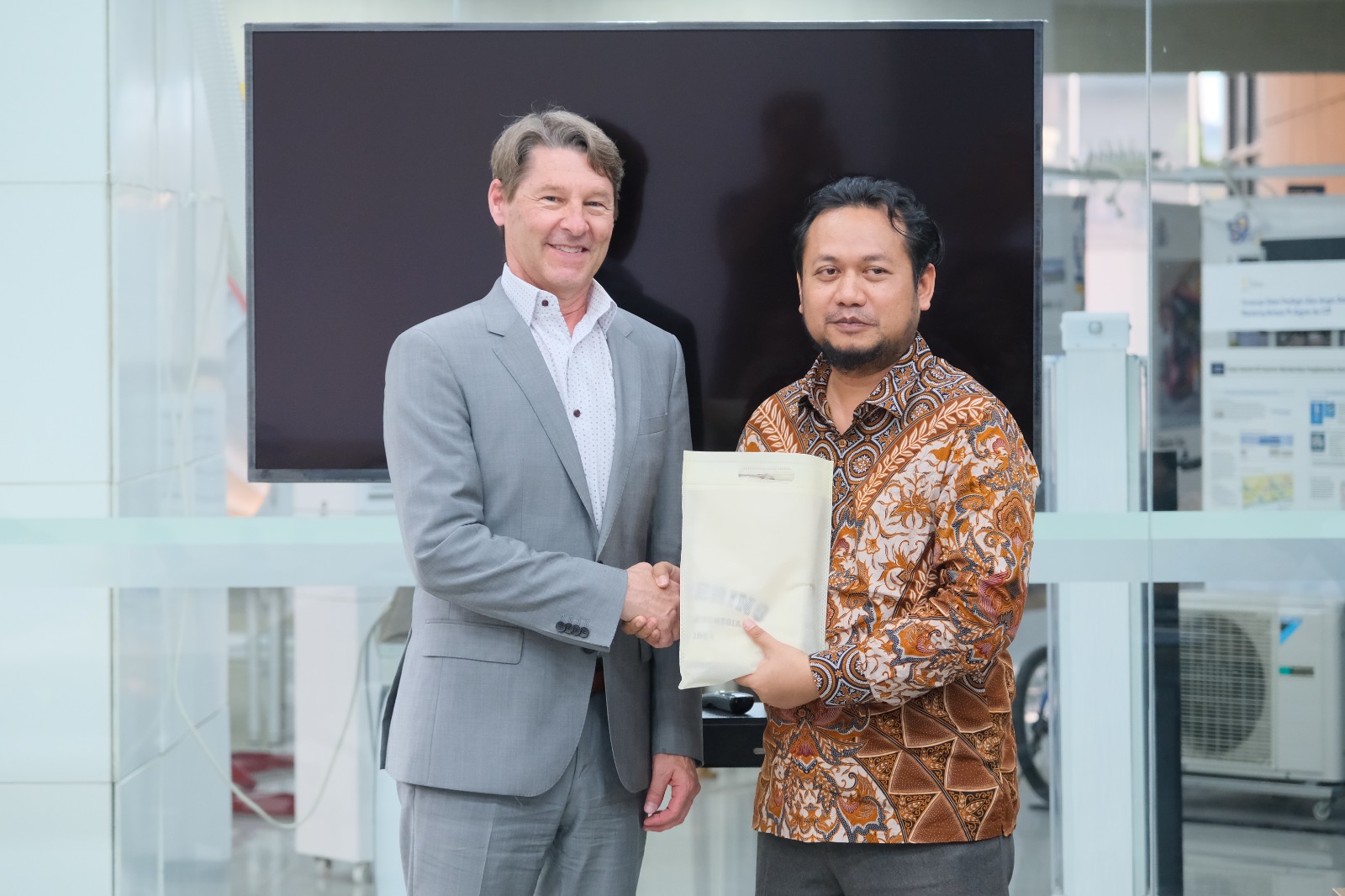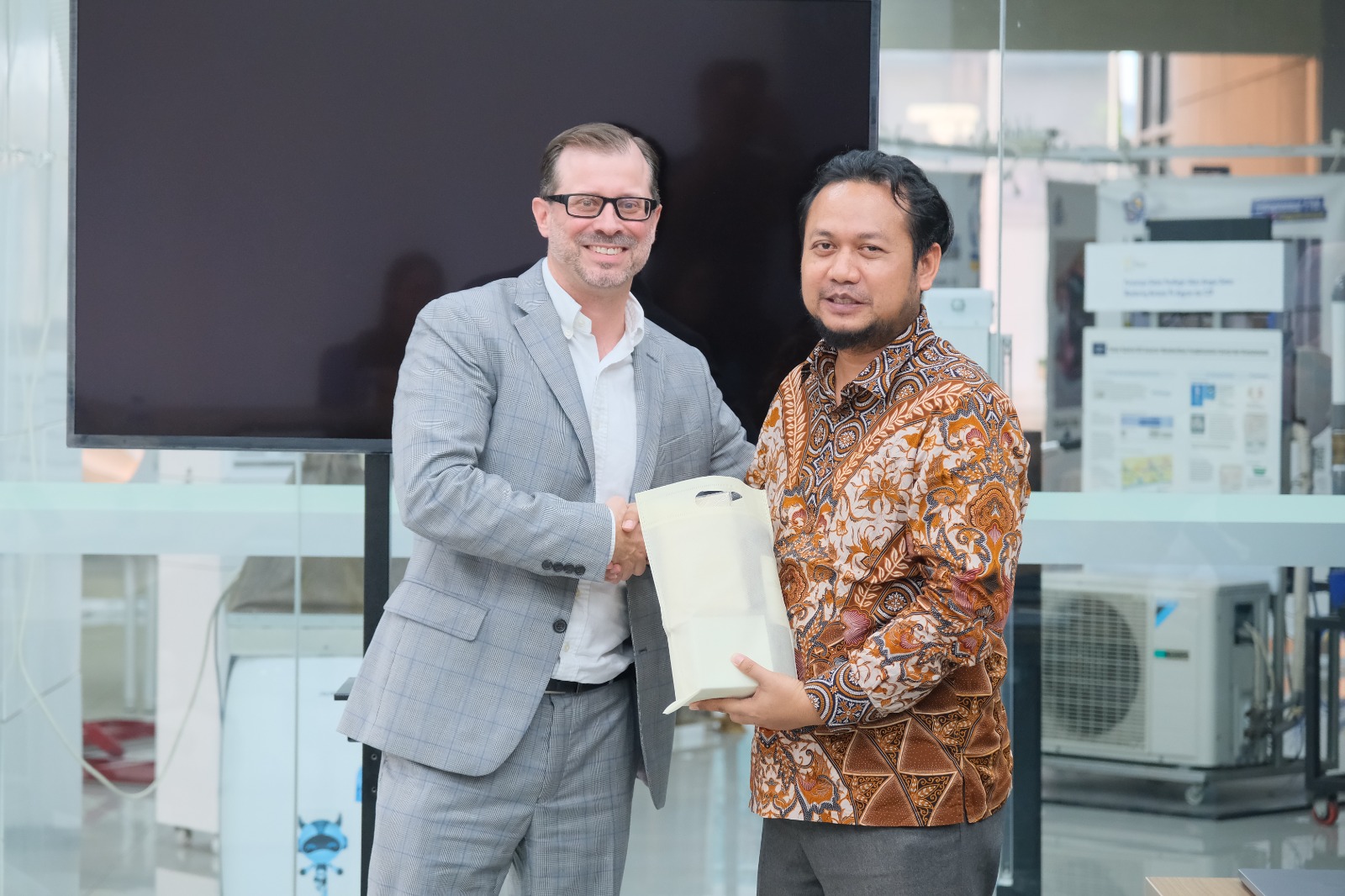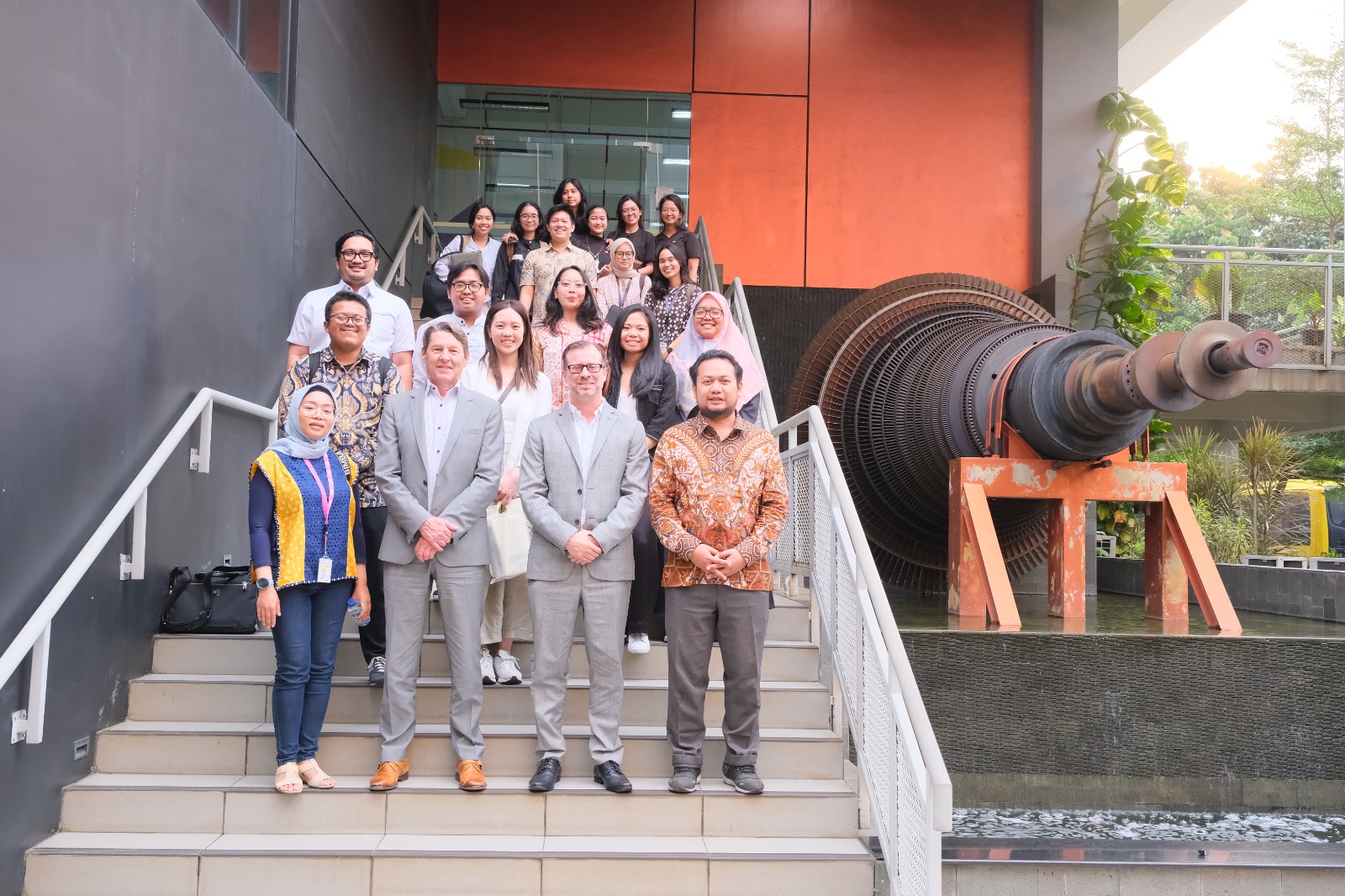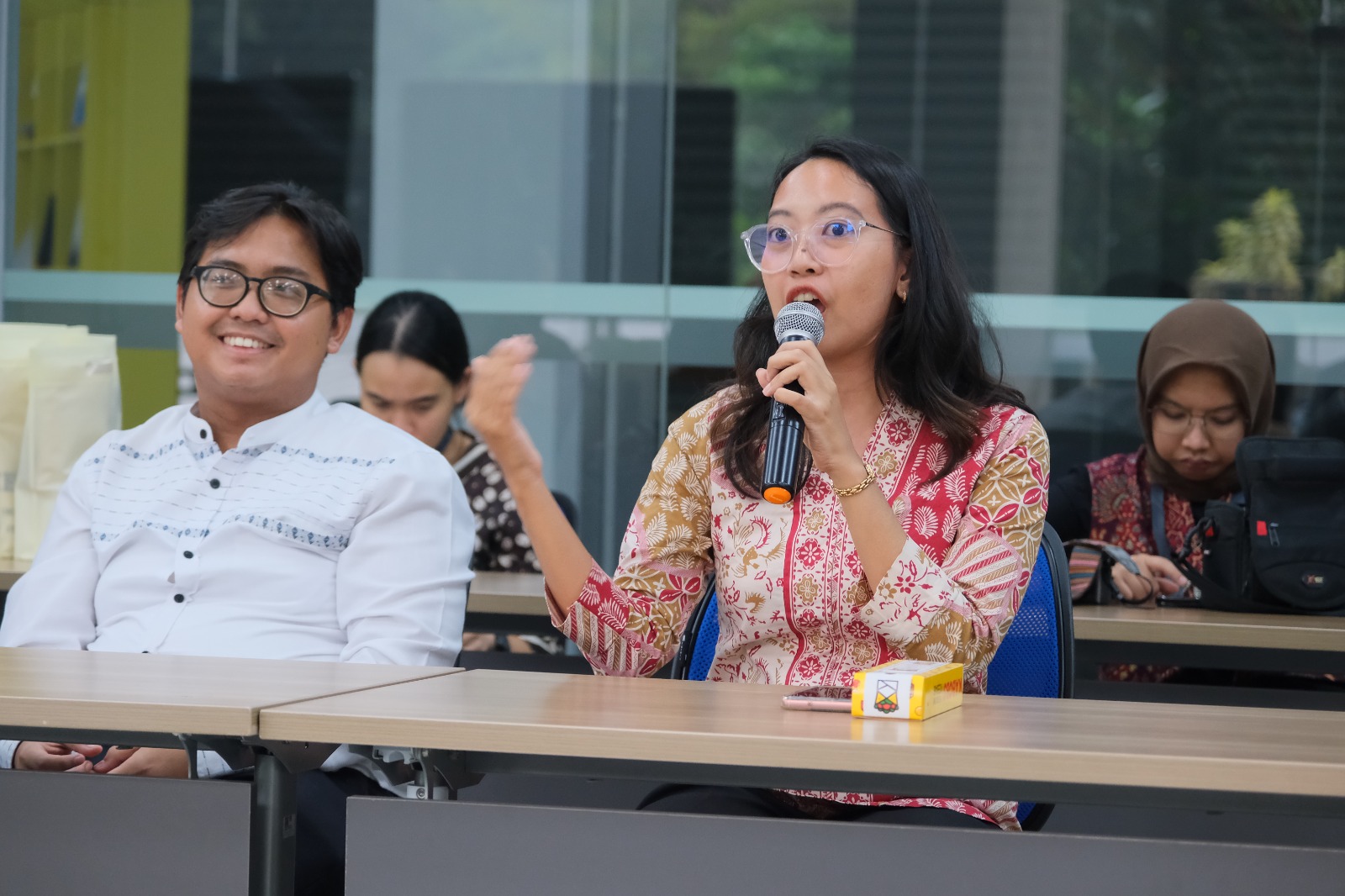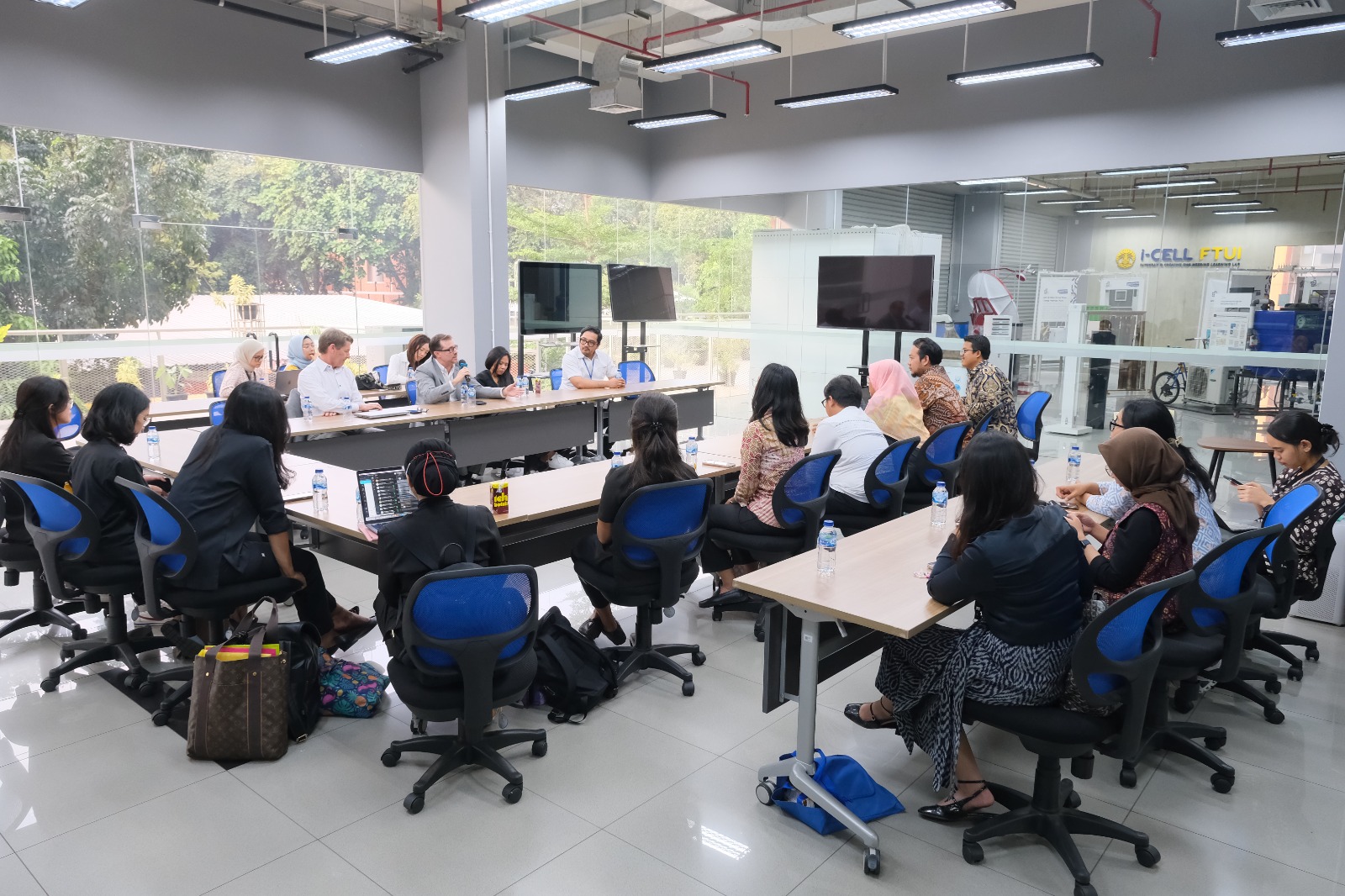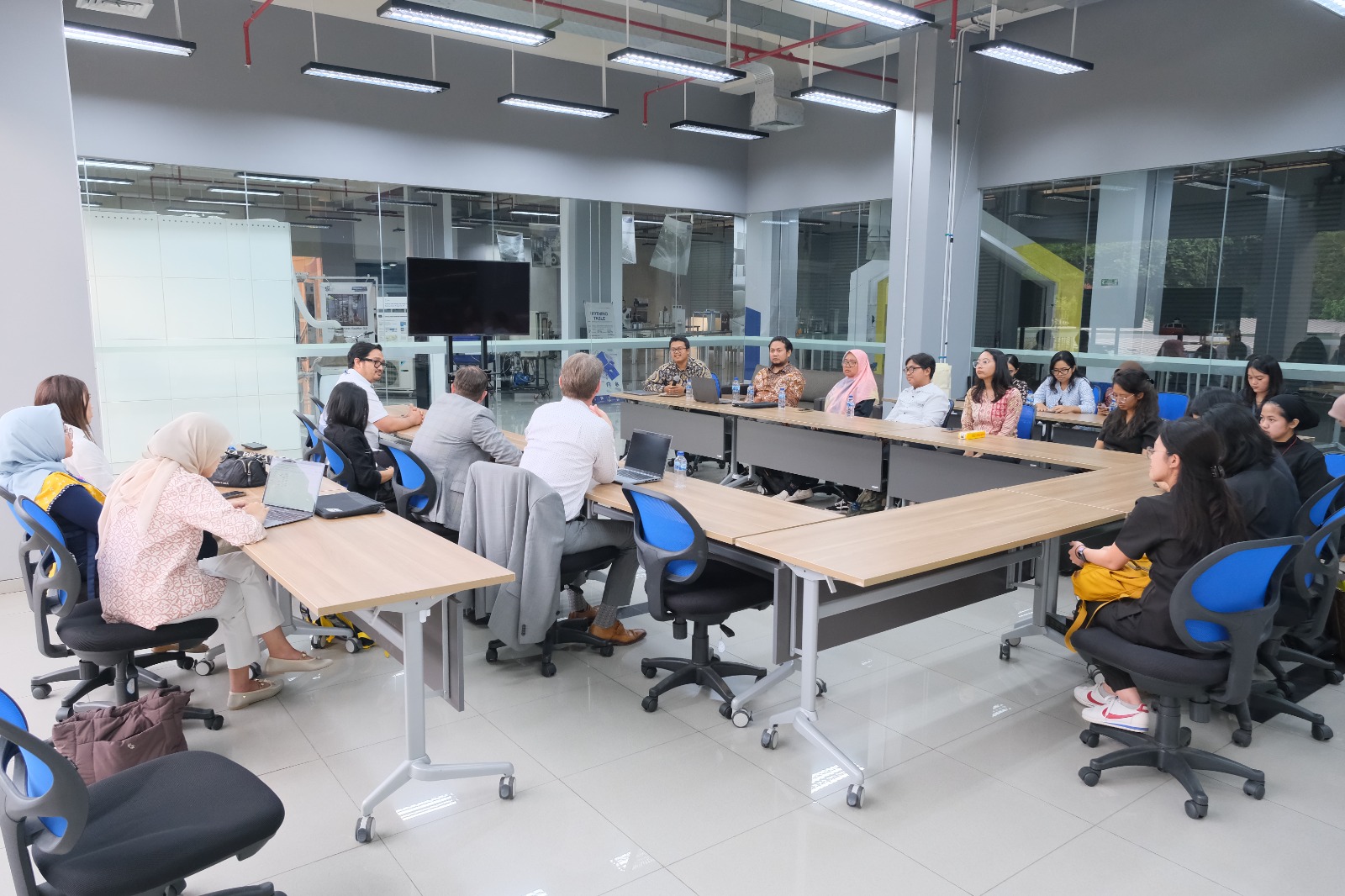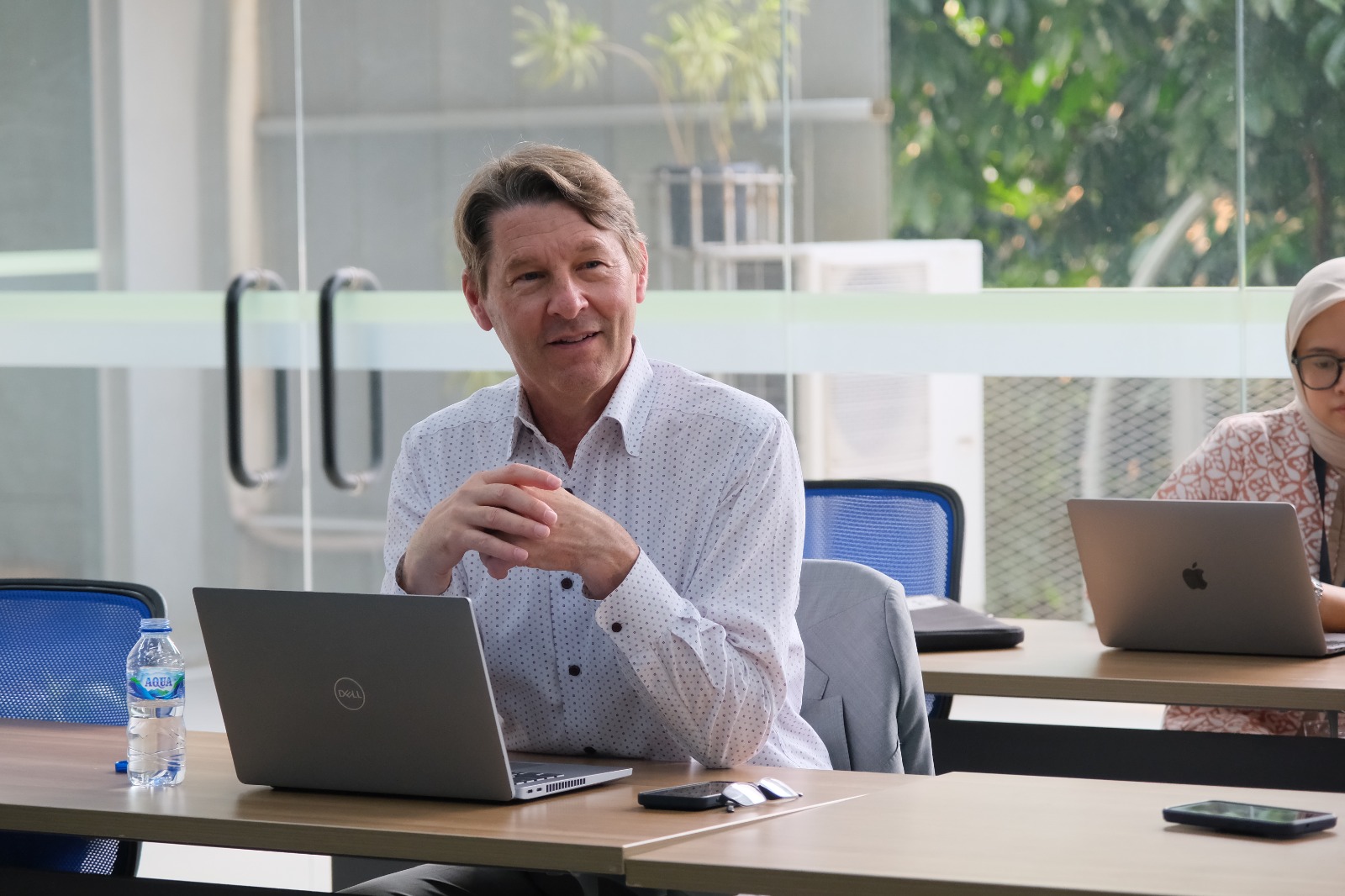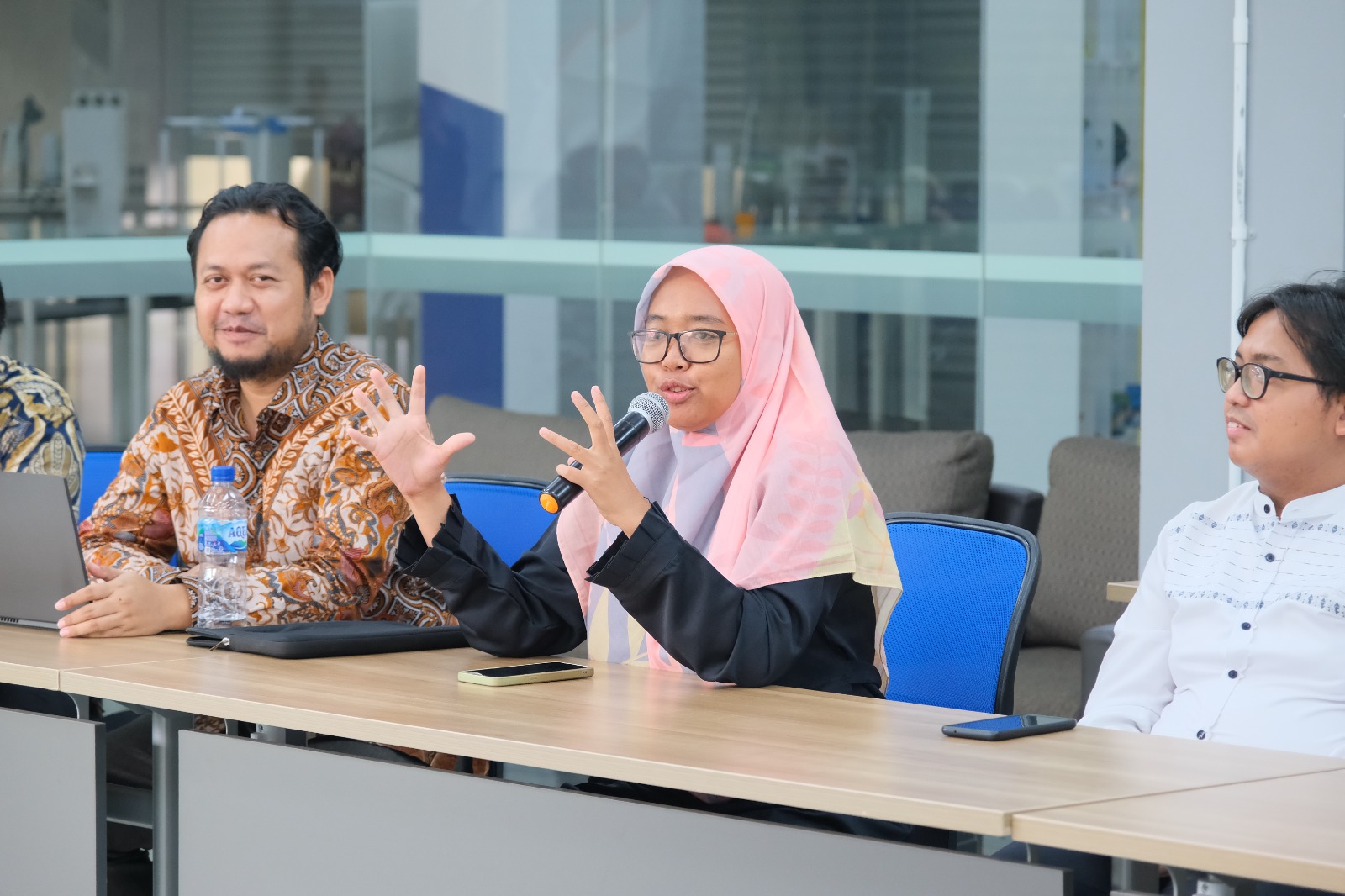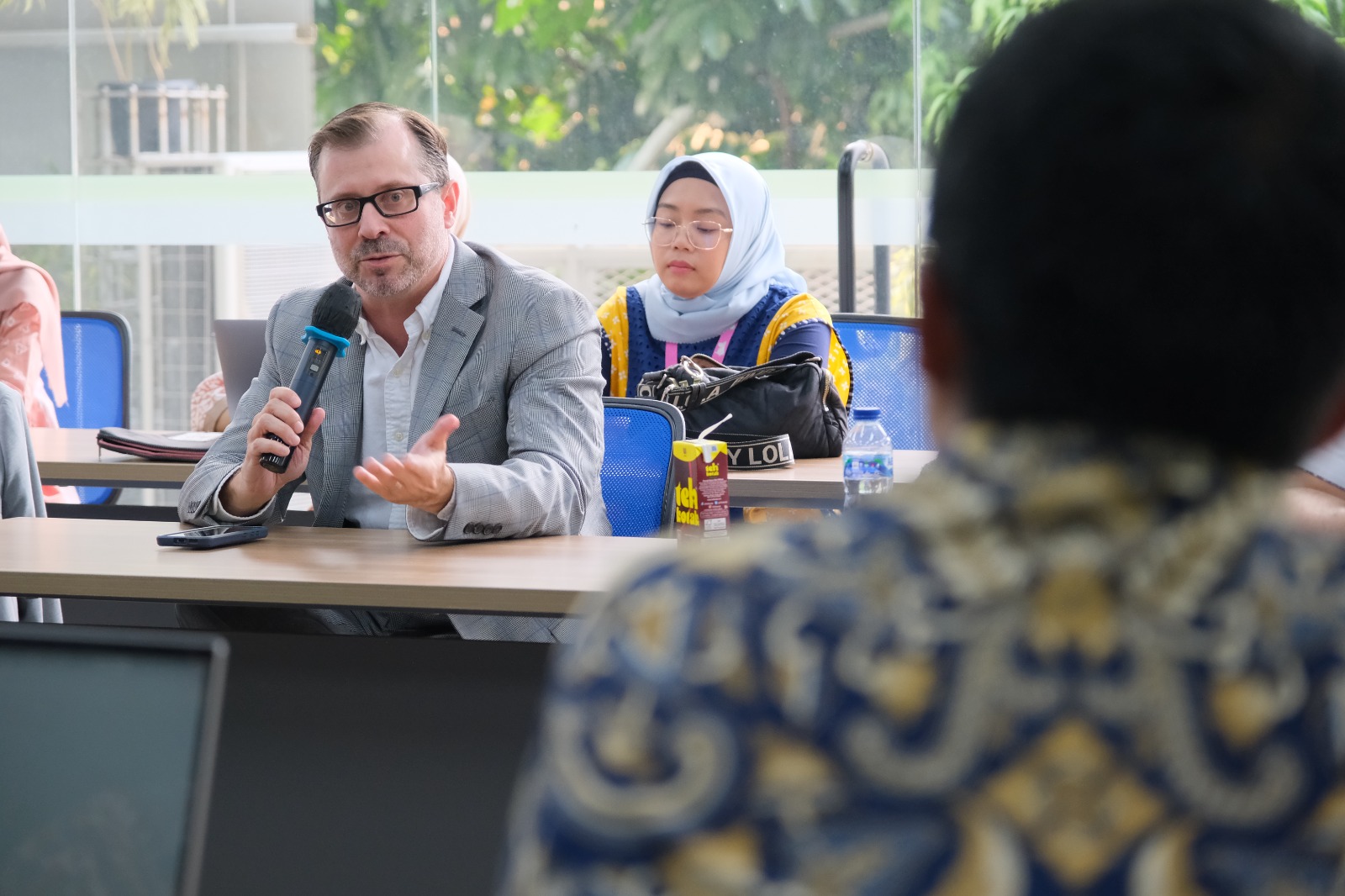On Friday (June 21), the Faculty of Engineering at Universitas Indonesia (FTUI), represented by the Research Center for Biomedical Engineering (RCBE), received a visit from the University of Michigan. The meeting, held in the i-CELL Meeting Room on the 2nd floor, was attended by representatives from both RCBE and the University of Michigan. From RCBE, attendees included RCBE Director Siti Fauziyah Rahman, S.T., M.Eng., Ph.D., Electro Engineering Lecturer Dr. Basari, S.T., M.Eng., Mohammad Ikhsan, S.T., M.T., Ph.D., Sylvi Febriana Rachmawati I, M.Eng., and Syahrul Ramdani, S.T., M.T. Representing the University of Michigan were Prof. Paul Cederna, M.D., Stephen W.P. Kemp, Ph.D., Widya Adidharma, M.D., and Sara Huang, B.Sc. Additionally, students from the Plastic Reconstructive and Aesthetic Surgery Specialist Program at the Faculty of Medicine, Universitas Indonesia, were also present.
The meeting began with an introduction to RCBE, covering its formation and current research clusters. The University of Michigan team introduced the start of their Regenerative Peripheral Nerve Interface (RPNI) research in 2007, highlighting the diverse team backgrounds that have contributed various insights and expertise. The discussion then moved to plans, including the possibility of mini-talks or symposiums and multidisciplinary research grants between RCBE and the RPNI team from the University of Michigan.
After the introductions and discussions on the history and development of research at both institutions, the meeting continued with a deeper discussion on potential collaboration. Topics included the development of innovative medical devices, tissue engineering techniques, and advanced technology applications in biomedicine. The collaboration is expected to not only strengthen research and innovation capabilities but also provide opportunities for students and researchers to participate in international projects with significant impacts on healthcare.
Currently, the University of Michigan team is focusing on the development of prosthetics and robot-based medical rehabilitation devices. Modern prosthetics have evolved from basic functions to high-performance devices integrated with the human body, aiming to improve the quality of life for amputees and individuals with limb differences. According to Prof. Kemp from the University of Michigan, two potential areas for development are biofeedback and personalized prosthetics. These areas could be the basis for future research collaboration between Universitas Indonesia and the University of Michigan.
On a separate occasion, FTUI Dean, Prof. Dr. Ir. Heri Hermansyah, ST., M.Eng., IPU., stated, “We are very pleased with the visit from the University of Michigan. This can be the first step for FTUI and the University of Michigan to establish cooperation. I hope that through this meeting, we can advance the field of biomedical engineering through collaboration with the relevant parties.”
***
Public Communication Office
Faculty of Engineering, Universitas Indonesia

